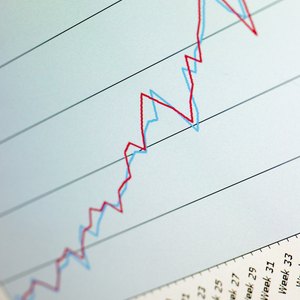
To the uninitiated, there's little apparent difference between sports gambling and investing in the stock market. Both carry the potential for gain and loss. Both require research that too many people do poorly or skip altogether. Both processes feel much the same as you're doing them. However, a detailed look shows several important differences between the two that explains why one is legal throughout the United States and the other is not in most jurisdictions.
Skill-Based Gambling
Sports betting is different from roulette or craps in that it's possible for skill to play a role in whether you win or lose money. This is what makes sports betting more similar to stock investment than other forms of betting. You can make a similar argument for poker or betting in any environment that permits progressive betting systems.
Comparative Returns
Comparing any two investment strategies requires comparing the typical returns between the two. This becomes a case of apples and oranges when comparing sports betting and stock trading. Investing in the stock market typically provides an overall small, but steady, return of about 10 percent per year on average. Sports betting typically involves several losses followed by a big return of 1000 percent or more. Whether this covers the cost of all lost bets depends on a specific situation, but average performance produces approximately a 5 percent loss over time.
Fees
When you place a stock order with a broker or online service, you're charged a handling fee, trading fee or similar amount. This can erode your profit if a stock does well, or increase your losses if it does poorly. Most sports bookies don't charge an up-front fee but make provisions for their profit when they calculate the odds offered on any given sporting event. For example, a bookie taking bets on the outcome of this year's Super Bowl coin toss might set the odds at 55:45 even though the true odds are 50:50.
A Rigged Game
One major difference between sports betting and the stock market is the way the professionals make money. Publicly traded companies make money by doing business. As they get wealthy, their investors also reap benefits. Sports bookies make money when people lose bets. They set the odds specifically to make people lose more money overall than they win. This is one of the key reasons only one of these practices is legal throughout the United States.
Day Trading
Overall the stock market is a safer investment than sports gambling, though admittedly less exciting or fun to research. Day trading is the exception to this rule. In day trading, individuals essentially place a short-term bet on the performance of a given company and either win or lose money according to that bet. Although only gambling is illegal except in certain places, there is no meaningful financial difference between day trading and sports betting.
References
Writer Bio
Jake Wayne has written professionally for more than 12 years, including assignments in business writing, national magazines and book-length projects. He has a psychology degree from the University of Oregon and black belts in three martial arts.

